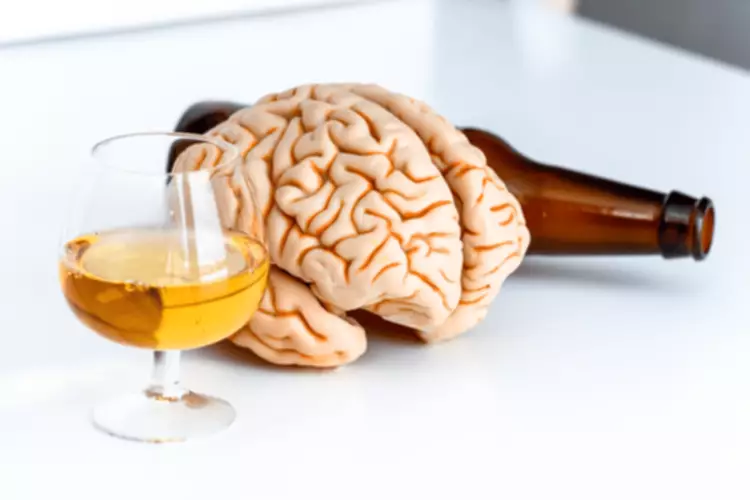Content
These mistakes can include recalling whether they had completed a task, such as locking the car or switching off the stove or forgetting where they put things. These can include hallucinations, severe agitation, seizures (often peaking around 24 hours), and symptoms of delirium tremens (DTs) which can occur in the most severe cases. This can include severe hallucinations and delusions, extreme confusion, and fever.
- For most of us, brain fog is related to lifestyle or temporary stressors.
- You can rest assured that brain fog goes away just like your other withdrawal symptoms.
- When a person drinks heavily, frequently, or for prolonged periods of time, their brain compensates for alcohol’s depressant effects by releasing more stimulating chemicals (compared to when a person does not drink).
- The red specks highlight where the integrity of the brain’s white matter is significantly less in the teens who binge drink, compared to those who do not.
- If you try to detox on your own, ask someone trusted, healthy, and responsible to keep an eye on you as you go through withdrawal.
- The symptoms of brain fog from alcohol can vary depending on the individual.
People in recovery continue to report the benefits of not drinking alcohol after 13 days of abstinence. “I needed professional help, as I had severe withdrawal symptoms of a DT nature with hallucinations, a possible seizure, and fear I would fall over dead any second. I went to the ER and detoxed five days in the hospital.” “Now that most of the physical symptoms have gone away, time to work at staying sober. This is usually where I mess https://ecosoberhouse.com/article/can-alcoholism-be-cured/ up and drink because I am feeling better and think I can handle it. I know I can’t.” When someone drinks alcohol for a prolonged period of time, their brain chemistry changes. Alcohol is a depressant, so the body responds by producing more stimulating chemicals, including the neurotransmitters dopamine and gamma-aminobutyric acid (GABA). Once a person recovers from their brain fog, they should continue their addiction treatment.
Healthy Withdrawal
Brain fog during the initial stages of withdrawal is often just your brain trying to figure out how it used to function before it was flooded with alcohol on a regular basis. Your body is working hard to clear out excess alcohol toxins while you battle intense alcohol cravings, so it makes sense that your ability to think clearly will be impaired during this time. The severity of these alcohol withdrawal symptoms isn’t limited to just physical symptoms. Many alcoholics experience brain fog when they first stop drinking alcohol. This has to do with alcohol’s effect on the brain, namely how it affects cognitive functioning. Alcohol use contributes to brain fog by impacting the way neurotransmitters function in your body and altering your brain waves.
- If you’re looking for ways to get rid of alcoholic brain fog, you’re in luck.
- “I feel great. To all those that are ready to give up because of withdrawals, hang in there! It does get better.”
- There may be ways to lessen alcohol’s effects on memory by reducing the amount of alcohol consumed and by using memory techniques to overcome memory loss issues.
The symptoms of alcohol withdrawal relate proportionately to the level of alcohol intake and the duration of the person’s recent drinking habit. This article discusses the causes, common symptoms, and different stages of alcohol withdrawal. It also discusses various treatment options for alcohol withdrawal and how you can get help.
Better Blood Pressure, Fewer Cravings
“Feels like a mild flu, but the tension is unbelievable. I’m having more problems with stress, losing my temper, and generally being horrible to my loved ones.” “What finally helped me was exercise. If I was going to sweat as part of the withdrawal, it would be at the gym.” Some are finally able to get some sleep at day five, whereas others still have problems sleeping. “Feeling a bit better. Luckily, my biggest withdrawals are insomnia and very itchy skin all over (face, arms, legs, back.) One concern I have is my swollen abdomen.” “Went from shaky to wanting to scream all day. I almost talked myself into ‘just one more’ several times, but somehow made it through.” “My worst symptoms so far seem to be lightheadedness, minor irritability, and insomnia.”

By day eight of abstinence from alcohol, many begin to see the health advantages of quitting. “I am in my first hours of sobriety. I just took the quiz for withdrawal symptoms and scored 60% moderate to severe. Funny, because my average hangover is usually worse than this.” People can experience a wide range of symptoms—ranging from mild to moderate to severe—that start and stop at different times for each person. Gathering a supportive network of friends and family members, as well as an addiction support group or even an inpatient rehabilitation center, can help you through this process.
Choosing to Quit
Prior to withdrawal, it’s important to have a plan of how you will abstain from alcohol during this time. When that person cuts out alcohol, there is a period when their brain alcohol brain fog hasn’t yet received the message and still overproduces the stimulating chemicals. With alcohol out of the equation, though, these chemicals cause withdrawal symptoms.
